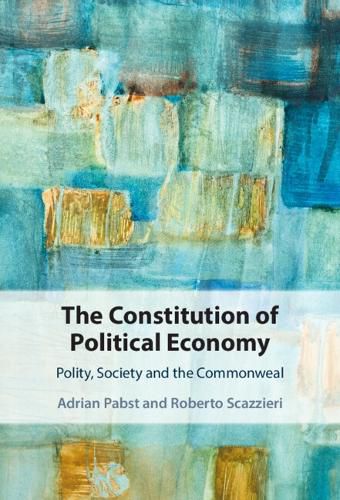Readings Newsletter
Become a Readings Member to make your shopping experience even easier.
Sign in or sign up for free!
You’re not far away from qualifying for FREE standard shipping within Australia
You’ve qualified for FREE standard shipping within Australia
The cart is loading…






The two dominant conceptions of political economy are based on either reducing political decisions to rational-choice reasoning or, conversely, reducing economic structures and phenomena to the realm of politics. In this book, Adrian Pabst and Roberto Scazzieri contend that neither conception is convincing and argue for a fundamental rethinking of political economy. Developing a new approach at the interface of economic theory and political thought, the book shows that political economy covers a plurality of dimensions, which reflect internal hierarchies and multiple relationships within the economic and political sphere. The Constitution of Political Economy presents a new, richer conception of political economy that draws on a range of thinkers from the history of political economy, recognising the complex embedding of the economy and the polity in society. Effective policy-making has to reflect this embedding and rests on the interdependence between local, national, and international actors to address multiple systemic crises.
$9.00 standard shipping within Australia
FREE standard shipping within Australia for orders over $100.00
Express & International shipping calculated at checkout
The two dominant conceptions of political economy are based on either reducing political decisions to rational-choice reasoning or, conversely, reducing economic structures and phenomena to the realm of politics. In this book, Adrian Pabst and Roberto Scazzieri contend that neither conception is convincing and argue for a fundamental rethinking of political economy. Developing a new approach at the interface of economic theory and political thought, the book shows that political economy covers a plurality of dimensions, which reflect internal hierarchies and multiple relationships within the economic and political sphere. The Constitution of Political Economy presents a new, richer conception of political economy that draws on a range of thinkers from the history of political economy, recognising the complex embedding of the economy and the polity in society. Effective policy-making has to reflect this embedding and rests on the interdependence between local, national, and international actors to address multiple systemic crises.